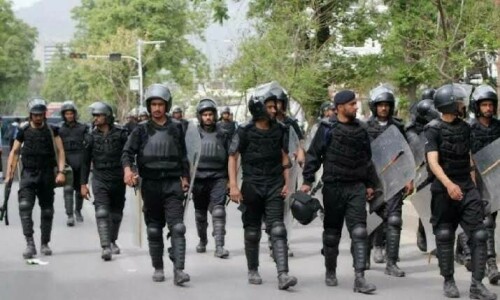CAIRO: The Opec oil exporting cartel, suffering from plummeting oil prices, faces further pain next year as a worldwide recession dampens demand for crude even more, analysts believe.
“Opec is dealing with tough circumstances, the toughest in 10 if not 30 years,” Raad AlKadiri of PFC Energy said on the sidelines of Opec’s informal gathering in the Egyptian capital.
Although Opec ministers decided on Saturday to keep output unchanged, they also vowed to cut production next month in the face of flagging demand and despite the global financial crisis.
“We took note of the serious deterioration in the world economy and its serious consequence on the oil price,” Opec President Chakib Khelil said, adding that “negative growth in (oil) demand is possible” next year.
“We realise that in the first quarter of next year we are probably going to have a decline in demand, and in the second quarter we are going to have a big decline,” Khelil said.
The Organisation of Petroleum Exporting Countries, which pumps 40 per cent of the world’s oil, has already slashed its output twice this year by a total of two million barrels per day in response to falling prices.
But the production cuts, agreed in September and October, failed to stop prices sliding under $50 a barrel earlier this month as concern mounted about a global recession that has already infected the eurozone and Japan.
Analysts said that Opec’s hands were tied because cutting output could damage the world economy even more.
“With much of the world in or heading towards a recession, Opec does not have a huge amount of political leverage in being able to dramatically reduce production,” said BetOnMarkets analyst Dave Evans in London.
“They have to support crude prices while at the same time ensuring that they do not do long-term damage to the global economy. They cannot afford to bite the hand that feeds.”—AFP












































Dear visitor, the comments section is undergoing an overhaul and will return soon.